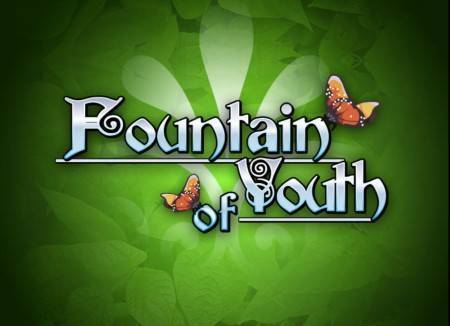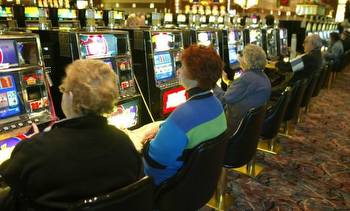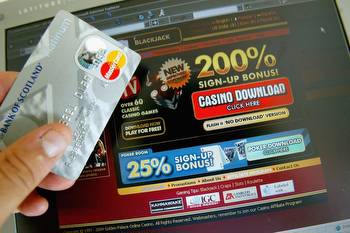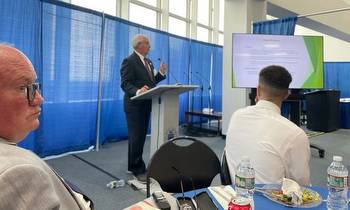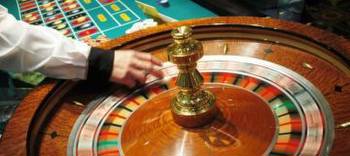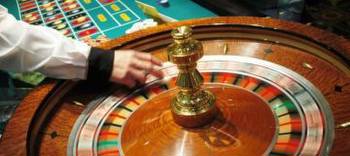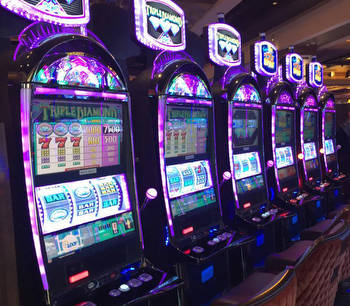Will U.K. White Paper's Online Slot Limits Scare U.S. Operators?

While politicians in the United States fall all over themselves in an attempt to limit sports bettingAmerican Gaming Association and the newly formed Coalition for Responsible Sports Betting Advertising have been scrambling to contain the fire.
Meanwhile, over in the United Kingdom, the much-anticipated white paper on gambling was released last week, and interestingly enough, it put the bulk of the onus for responsible advertising at the feet of the operators, not the regulators.
But advertising was just one area the white paper dove into.
Another section, which has gone largely unnoticed in the U.S., focused on placing limits on online casino play. Specifically, the paper recommended that no online casino game should have limits higher than about $18.75 per spin for adults over 25 and $2.50 a spin for adults of a legal age under 25.
Currently, there are no regulated limits either in the U.K. or here in the six U.S. states – New Jersey, Pennsylvania, Connecticut, West Virginia, Delaware, and Michigan — that currently offer online casino play. And a quick look at some online slots and blackjack games shows how operators have games that reach some truly rarefied air, such as $4,000 a hand or upward of $4,000 a spin.
While high limits like these are not new — go to any land-based casino — the idea that someone can play a $4,000 hand of blackjack in their underpants sure does feel like pretty low-hanging fruit for American politicians to sink their fangs into.
In short: Is it possible bordering on likely that the online casino industry is courting disaster by offering slots with limits that would allow players to gamble potentially ruinous amounts of money in the amount of time it takes to cook an egg?
Volunteers needed
“We strongly encourage operators to voluntarily set tighter limits,” said Keith Whyte, the executive director of the National Council on Problem Gambling. “Otherwise, they run the risk of the government stepping in and instituting much more severe restrictions, as we are watching play out in the U.K. white paper right now.”
Brianne Doura-Schawohl, a leading responsible gambling advocate, agrees.
“The U.S. has been seeing a pretty stark and not-so-kind change in public opinion of late around legalized gambling,” she said. “The pushback from a variety of stakeholders on the aggressive pursuits, often misleading promotions, and over-saturation of advertisements should be signaling to the industry [that] consumers are demanding better and more transparent protections.”
Both Doura-Schawohl and Whyte believe making sure younger people don’t fall into the compulsive gambling trap via online casino should be of tantamount importance.
“I think there is more evidence that the limits based on age will make a bigger impact on limiting gambling-related harm,” Whyte said.
Doura-Schawohl added, “Online gambling products — I call them slot machines in your pocket — are likely to be far more dangerous for those already at risk or struggling with problem gambling and to lead to increased incidents of problem gambling. While game-design features alone cannot and will not address this important public health issue, game design and limitations thereof should be an important consideration for operation.”
Not so fast
Rick Eckert, the managing director of slot performance and analytics at Eilers and Krejcik Gaming, doesn’t think smaller max limits are going to happen – at least not from the operators’ side.
“I don’t see any way that something similar will pass in the U.S. market as far as max bet limits,” Eckert said. “That being said, I think there will likely be more responsible gaming initiatives, but mostly notifications to players on time played and amounts wagered based on their historical play amounts. I just don’t see the same limitations being applied in the U.S.”
Alun Bowden, a senior consultant who specializes in the U.K. market for Eilers and Krejcik, thinks the discussion about slot limits in the U.K. is a “hangover” from previous discussions about fixed-odds betting terminals. These machines offer roulette and other games, and the government stepped in back in 2018 to limit the maximum bet to roughly $2.50, down from over $125.
“So it ‘feels’ like online casino should be the same,” Bowden noted, “but I don’t think it’s an issue that has ever got much media coverage or ‘shock horror’ public attention, weirdly enough.”
And U.S. operators would undoubtedly prefer the same lack of shock horror media coverage here.
But perhaps that feels a little false-hopey, given the current landscape. Or, as Doura-Schawohl put it, “If the industry has any desire for long-term sustainability, heeding the warnings of those abroad on issues such as this should be imperative.”







